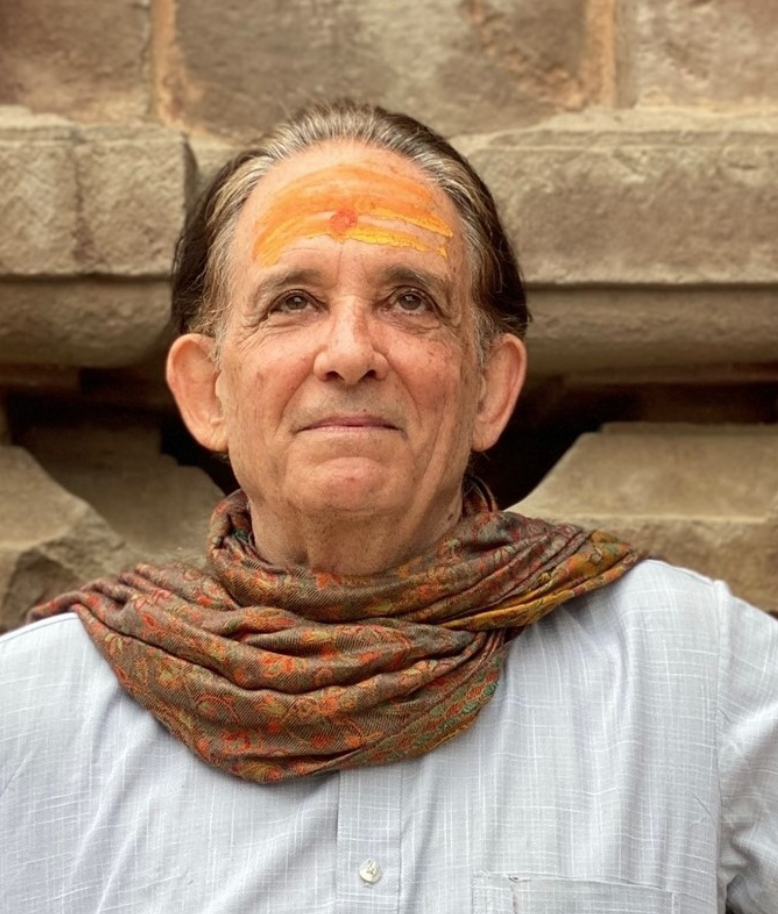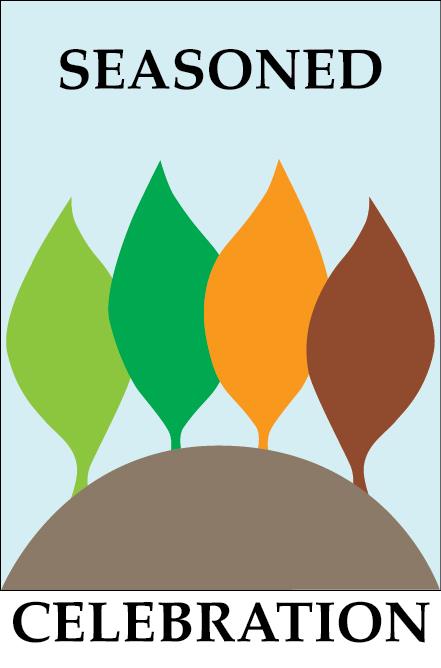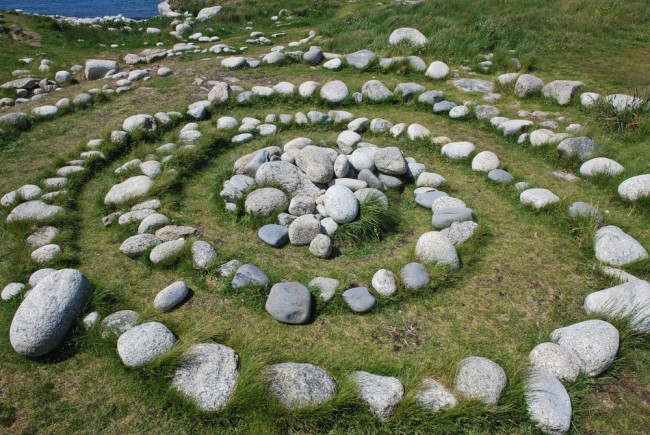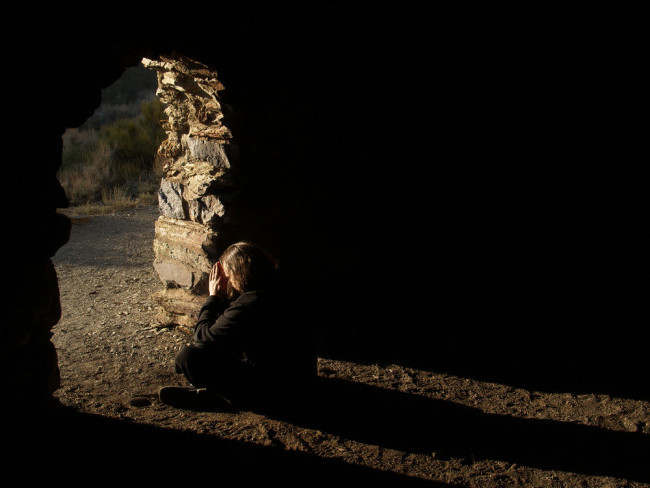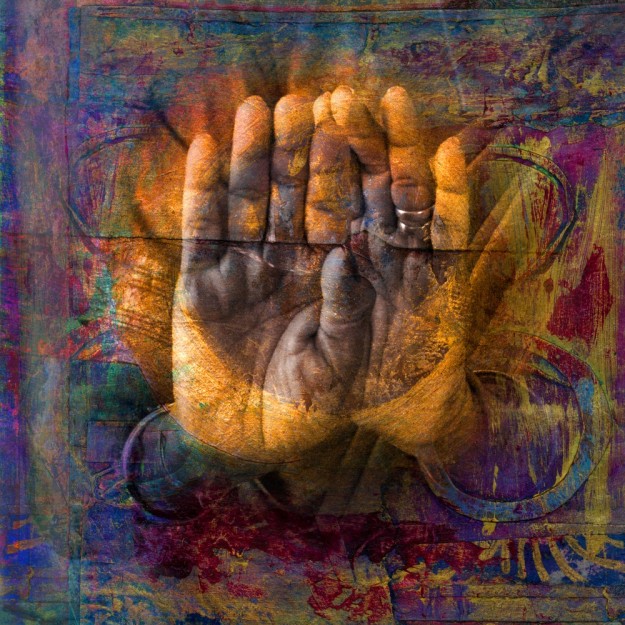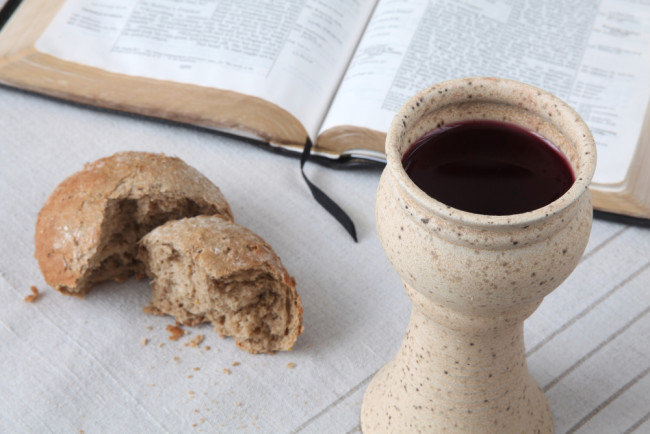I hold in my consciousness two previously unimaginable opposites; on the one hand the possible even likely extinction of humanity and on the other, the potential for our unimaginable birth of a new embodied divine humanity, the mutation realized and resplendent.
From the Seasoned Celebration Collection
1. Winter is the season of the revelation of basic structure. If I was to strip away all the paraphernalia of my life what form would it have? How many of the things which I do are related to the roots of my spirit. 2. Winter is the season for hibernation. What rhythm do I have for reflection as well as action? What frequency and length of time do I need in solitude in order to facilitate the growth and quality of my spirituality?
Before we start, we all will exit outside to the labyrinth and begin our silence. Walk the labyrinth to the center and back out while meditating on quieting and listening to the Divine within.
by Alexander J. Shaia with Michelle Gaugy
"The nine Beatitudes reflect diverse parts of a harmonious unity which I endlessly reflect and touch each other as we go through our lives. At the very heart of Jesus's teachings, their practice opens us to compassion. If we are able to place these on our hearts, walk with them on our feet, hold them in our hands, and seal them in our thoughts, we will have more insight along our journey. They will become our walking staff and guide for the arduous times we will face.
In the northern hemisphere, this solstice occurs during what is typically the coldest season of the year. Throughout history winter has been regarded as the season of hibernation, stillness, melancholy, famine, dormancy, darkness and cold. The symbolism of the winter solstice to-date represents the coming of lighter days and potentially elevated optimism, energy and hope.
This past year, at my congregation on Cape Cod, we began to celebrate the seasons of the year as part of our affirmation
As we gather today to welcome……….(name of the child) into the world, we recognise our responsibilities towards……….(name of the child), towards each other and the world in which we live.
How do you speak with integrity of belief when your audience is seemingly traditional and literal?
We are here to praise and enjoy God with body and soul, mind and heart, with song and word, with hands and feet. We are here to give because of the abundance God has given us, to share with each other, and to receive, because God has created us to depend on each other. We are here to celebrate the differences that otherwise might divide us: differences of age, of body, of culture, of opinion, of ability, of religious conviction. We are here to put things in perspective: to celebrate what matters, to laugh about things we take too seriously, to cry about things that truly touch our hearts. So may it be this morning: Amen!
The central focus for Christian liturgy is the ritual Eucharist. Traditionally Eucharist (which means “thanksgiving”) has reenacted the last meal Jesus ate with his followers before the blood sacrifice of his execution at the hands of the Romans, but with the dogmatic interpretation that Jesus died to save sinners from hell in the next life. Twenty-first century progressive Christians are concerned more with living a life of justice-compassion here and now (as Jesus taught) than reconciling with a god that demands blood sacrifice in exchange for a carefree afterlife. What is required is to act with justice-compassion in radical abandonment of self-interest. Suppose that instead of terrorizing ourselves with the Advent of violent judgment, we were to celebrate the Advent of the Christ consciousness; instead of a Eucharist mourning the personal holocaust of Jesus’s death, a Eucharist of Ordination, in which we recommit ourselves to the great work of distributive justice-compassion? We have the power, at any moment, to transform the way we live our lives. We can choose not to participate in the retributive system of imperial war and systemic injustice. We can step into the kind of ongoing parallel universe of God’s justice-compassion at any moment. We can change our consciousness, change the paradigm in which we live, whenever we have the will to do so. Jesus is not coming again. We are; and when the rare opportunity presents itself, we can break the alabaster jar in remembrance of her.

